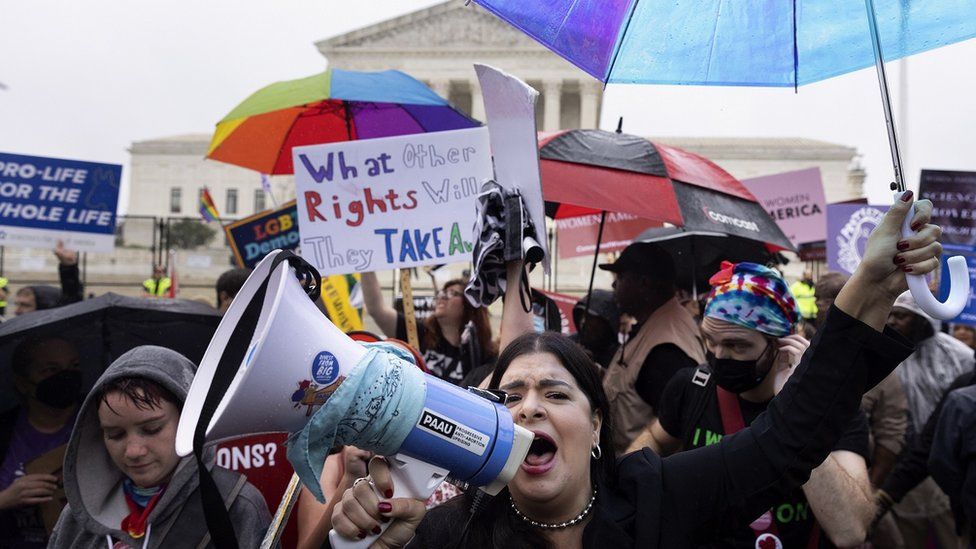On the July 1 episode The Final Word, Abby Hughes talked to a reproductive rights advocate and a Canadian lawyer about the US Supreme Court’s decision to overturn Roe v. Wade. They told her about the potential ripple effects we might see here in Canada.
Last week, the United States Supreme Court overturned Roe v. Wade, removing the constitutional right to abortion in the Uniteed States. Though the ruling doesn’t have a direct impact outside the US, many are worried about the future of abortion rights here in Canada.
Canada’s right to abortion care is upheld by the Supreme Court. The Canadian equivalent of Roe v. Wade is a case called R. v. Morgentaler.
Dr. Henry Morgentaler and two other doctors set up an abortion clinic in the 1980s. At the time, women could only have abortions if the pregnancy would jeopardize their health.
When Morgentaler and the other doctors at the practice were charged for performing illegal abortions, they fought their case, all the way to the Supreme Court. They argued that restricting abortion violated a woman’s right to security of the person. In 1988, the Supreme Court of Canada ruled 5-2 that criminalizing abortion was unconstitutional.
Over the years, politicians have tried to introduce legislation against abortions. The closest Canada came to restricting access was in 1990, when the conservative government under Brian Mulroney passed a bill in the House of Commons banning all abortion procedures. It was ultimately struck down by the Senate.
However, Jill Doctoroff, the executive director of National Abortion Federation (NAF) Canada, says that rollbacks like the ones seen in the US are still possible here.
“I’ve been working in this field for more than 15 years now,” says Doctoroff. “And if somebody asked me 15 years ago, did I ever think Roe v Wade, in the United States, would fall like it did… I would have said, oh, my God, there might be more restrictions, but no.”
“We can’t take for granted what’s happening here in Canada.”
Chris Sewrattan, a lawyer and instructor at TMU’s Lincoln Alexander Law School, agrees that Canada isn’t immune from a similar ruling.
The US And Canada both operate under a system of common law, which is based on precedent.
“What it (means) is that like cases need to be decided alike,” says Sewrattan. Essentially, in the case of Roe v. Wade, once that ruling went through, the Supreme Court’s future decisions should all be made in line with that prior ruling.
According to Sewrattan, now that the US Supreme Court has gone against precedent, it might open the door for the Canadian Supreme Court to do the same.
“It’s possible that somewhere down the line we have a Supreme Court that doesn’t care about what the court said in the past and overturns itself, just as the US Supreme Court just did.”
For now, people who can get pregnant do have the right to abortion procedures across the country. However, given the way our healthcare system works, rules around procedures vary from province to province.
Doctoroff and the NAF are focusing on ways to expand the availability of abortion services in Canada. For example, people living in rural settings have a much more difficult time accessing abortions than people living in large cities.
Doctoroff says the NAF has seen an increased amount of support since the US Supreme Court ruling. They’ve received an outpouring of donations, and seen a substantial uptick in registration for their course on medical abortion for people working in primary care.
“I think that people are feeling such compassion and such despair at what’s happening in the states, but also some hopelessness. And that’s one thing that people can actually do to take action.”
Want more? Hear the full story, and others, on The Final Word from June 24, 2022. The podcast can be found on SoundCloud, Spotify, and Apple Music.









